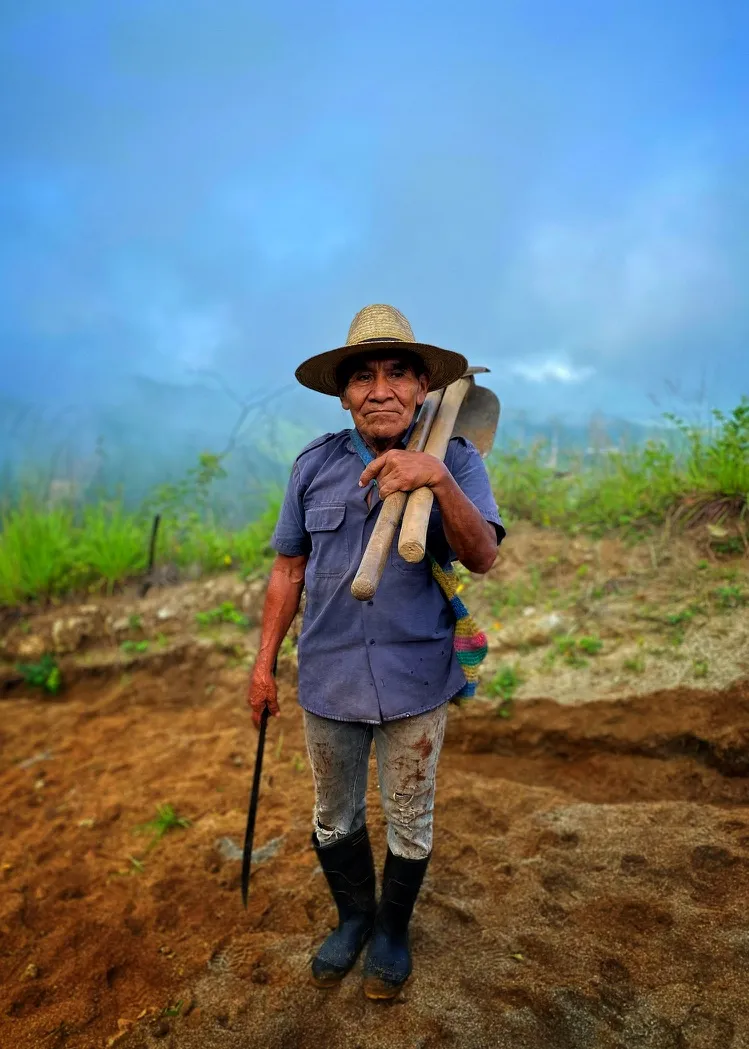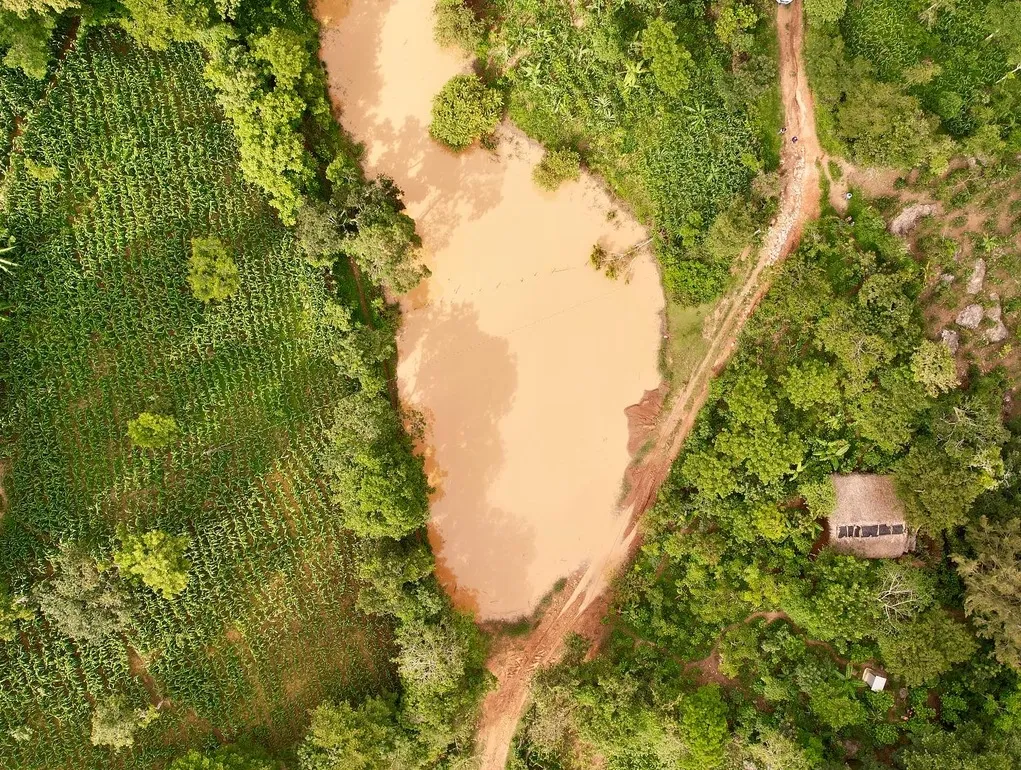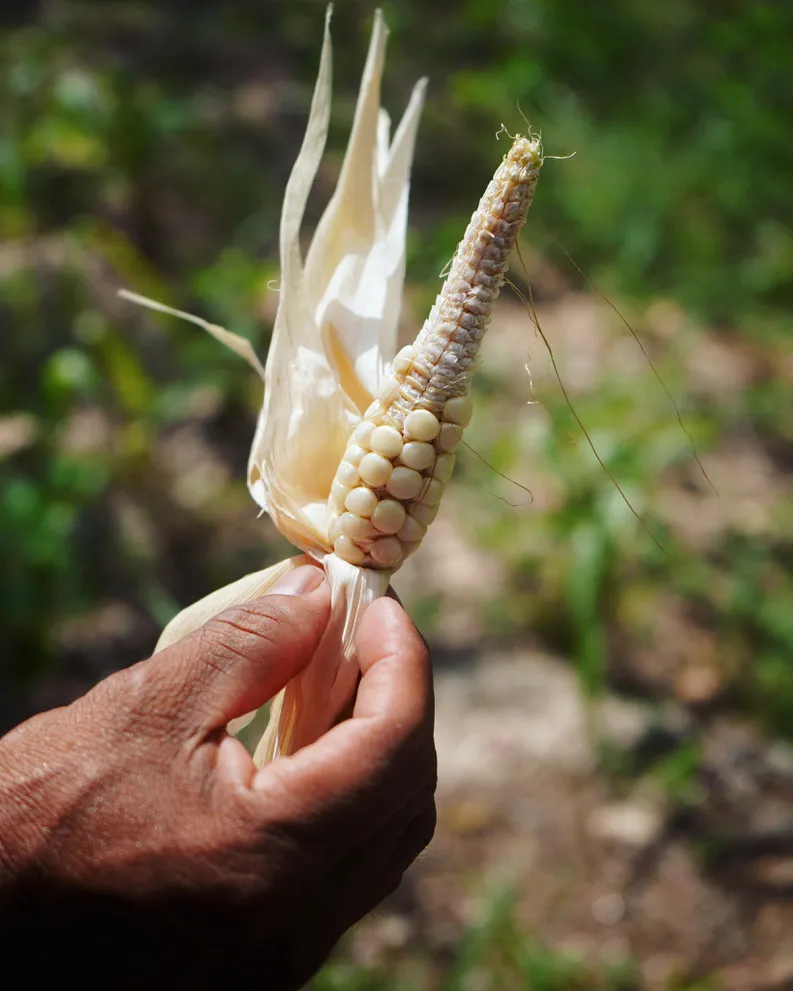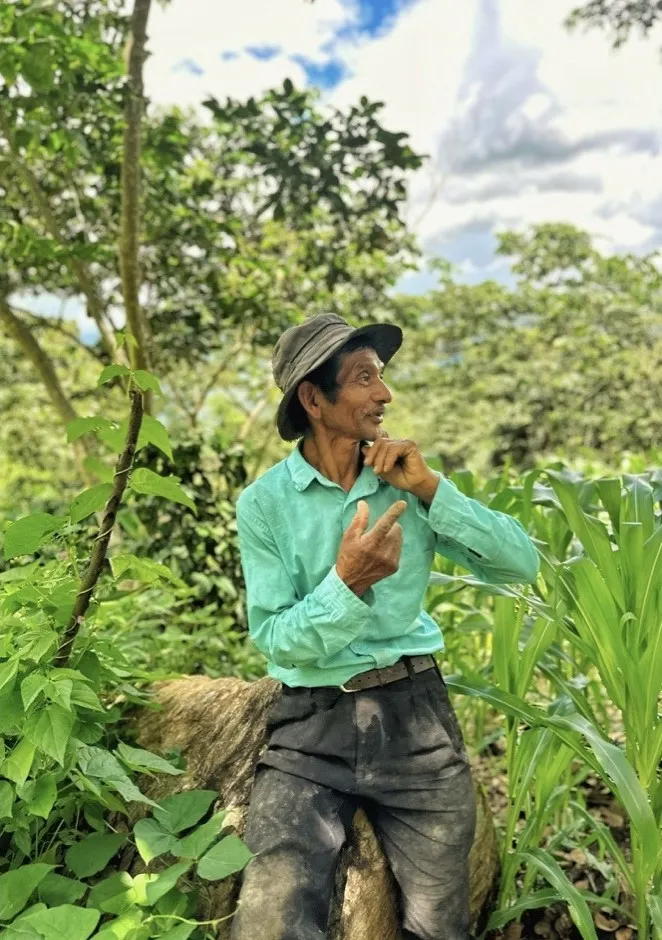Pilot Launch | MiCRO: Boosting Smallholder Resilience through Enhanced Parametric Insurance in Guatemala
Smallholder famer in Zacapa — photo by Jorge Barrientos — MiCRO
Mercy Corps Ventures and Microinsurance Risk Solutions (MiCRO) launch a pilot to deploy innovative technology to mitigate basis risk for smallholder farmers. The initiative will compare the cost-effectiveness of different methods, including innovative technologies to assess or verify losses in the field that do not trigger the existing parametric insurance.
This post is the first of a two-part series. The second blog will share key insights after the pilot is completed. Written by Maria Gomez, Innovation Manager at Mercy Corps Ventures, and Beatriz Vaca, Chief Operating Officer from MiCRO.
In brief:
While parametric insurance has succeeded in expanding insurance coverage and reducing premiums for smallholder farmers, significant opportunities to improve the product remain.
With MiCRO, a specialized organization dedicated to providing innovative risk management solutions for vulnerable populations, and in partnership with the Ministry of Agriculture in Guatemala, we are launching a Basis Risk Fund which will provide payout to farmers affected by climate events that go undetected by the parametric insurance policy.
To ensure scalability and sustainability, the Basis Risk Fund will be powered by cutting-edge technologies and aim to build farmers’ trust in insurance.
Flooded fields in Chiquimula, Guatemala — photo by Jorge Barrientos — MiCRO
The Problem
Lack of risk management tools makes farmers more vulnerable to climate change
Guatemala is highly exposed to climate risks, ranking 16th in the Global Climate Risk Index. The severity and frequency of excessive rainfall and droughts are rising, impacting over one million smallholder farmers who are most vulnerable to natural hazards. Yet, despite the risks, their losses go largely uncovered by insurance. In 2018, for instance, 87% of total agricultural losses were left unfunded, while public expenditures for drought accounted for less than 3% of total disaster risk expenditures. This was a year in which farmers in Guatemala, Honduras, and El Salvador lost 280,000 hectares of beans and maize because of severe droughts associated with El Niño conditions.
Parametric insurance is a promising solution, but inaccurate payouts could erode smallholder confidence
Parametric insurance has been recognized as an effective mechanism to bolster climate resilience and protect smallholder producers against these risks. The Guatemalan Ministry of Agriculture and Livestock has implemented a parametric insurance program specifically designed to shield smallholder farmers from catastrophic events. Under this program, the Ministry purchases a single insurance policy that covers 70,000 smallholder farmers during the 2024–25 cycle. The parametric (or index-based) insurance pays out on the occurrence of a triggering event — for example, a specific level of rainfall as measured by a satellite — instead of indemnifying the actual loss incurred.
Nonetheless, farmers are still at risk from events that fail to trigger parametric insurance, which can still cause significant damage. The absence of payouts for these events erodes confidence in the insurance product. Consequently, there is a need for an additional approach to address individual losses that the parametric insurance indices fail to capture. The World Bank has suggested the use of complementary funds in the Northern Triangle (Guatemala, El Salvador, Honduras) to better protect farmers as well as enhance acceptance and mitigate the reputational risks associated with parametric insurance.
Operating traditional insurance in remote rural areas is expensive
Providing insurance to smallholder farmers is a costly challenge, primarily due to the difficulty of verifying claims and the farmers’ limited ability to afford premiums. Traditional insurance models rely on in-person assessments to determine losses, which is expensive and logistically complex. Smallholder farmers are often spread across remote areas, requiring insurers to send agents long distances to verify claims. Additionally, many smallholder farmers lack historic yield data or formal records, making it difficult for insurers to accurately assess risks and price policies. Without efficient verification methods, insurers face high administrative costs that drive up the price, often making it unviable for both insurers and farmers (ISF, 2022)
Beyond the cost of verification, affordability remains a major barrier. Smallholder farmers typically earn low and irregular incomes, making it difficult for them to pay insurance premiums, especially when priced to cover the high cost of verification and administration. (ISF, 2022).
Image courtesy of MiCRO
The Pilot
In response to the gaps, Mercy Corps Ventures (MCV) has partnered with MiCRO to launch a project aimed at enhancing financial resilience for smallholder farmers in the face of climate-related disasters. MiCRO is a specialized organization dedicated to providing innovative risk management solutions for vulnerable populations affected by natural disasters. Originally founded in response of the 2010 Haiti earthquake by Mercy Corps and Fonzoke, MiCRO has since expanded its operations, designing parametric insurance products that offer rapid payouts based on predefined triggers, such as extreme weather events across Latin America. In Guatemala, MiCRO has partnered with the Ministry of Agriculture to support smallholder farmers, ensuring they have access to financial protection against climate-related shocks. Through this collaboration, MiCRO currently serves 70,000 farmers in the country, leveraging its expertise in disaster risk management alongside local insurance providers and microfinance institutions.
This pilot will focus on leveraging innovative technologies to mitigate “basis risk,” the gap where (parametric) insurance fails to trigger payouts despite actual losses from qualifying events.
The overall purpose of the pilot is to improve the existing parametric insurance by
establishing a Basis Risk Fund that allows to better understand the basis risk and then adjust as necessary and
to test alternative, technology-led, methods to verify claims, reducing the cost of insurance for farmers. The initiative establishes a Basis Risk Fund using non-reimbursable capital to compensate farmers for qualifying losses not covered by existing insurance products.
This fund will use alternative triggering mechanisms, enabling a more accurate identification of eligible claims. Together with MiCRO we’ll explore innovative technology-led methods, such as drones, to assess and verify losses, and compare their cost-effectiveness with traditional methods.
Smallholder famer in Zacapa — photo by Jorge Barrientos — MiCRO
We expect this initiative to strengthen the trust and perceived value of parametric insurance for farmers and increase demand for such products. Additionally, the pilot will allow MCV and MiCRO to evaluate the operational feasibility and capital requirements for the fund’s long-term sustainability. By capturing and analyzing data from the project, we aim to refine insurance indices, improve product offerings, and foster greater collaboration with both the Ministry of Agriculture and the private sector.
Key goals include:
Enhancing the parametric insurance model.
Testing alternative loss assessment technologies.
Establishing processes to improve event identification.
Determining fund sustainability to scale the model.
Ultimately, this pilot is designed to increase private sector interest, drive innovation, and enhance insurance solutions for smallholder farmers facing climate risks.
Image courtesy of MiCRO
Our Hypotheses
The Basis Risk Fund, as an enhanced functionality of parametric insurance, will sustainably make subsistence farmers more resilient to climate risks. The north star here is increased farmer risk protection from weather events.
The Fund will increase trust in climate parametric insurance and its perceived value. The north star here is covering more farmers with parametric insurance.
Alternative tech-enabled methods to verify claims allow insurers to identify ‘false negatives. The north star here is to identify cost-effective ways to verify claims (i.e., it is cheaper to use the technology than traditional, in-person verification).
We hope that a Basis Risk Fund will improve the design of parametric insurance and increase trust and perceived value in this product. From a business perspective, we hope this pilot will help identify tech-enabled mechanisms that allow MiCRO to verify individual claims in a cost-effective way.
Smallholder famer in Zacapa — photo by Jorge Barrientos — MiCRO
Stay tuned for updates, evidence, and insights on our other Mercy Corps Ventures pilots responsibly testing technology solutions to increase climate resilience of vulnerable populations in emerging markets.






